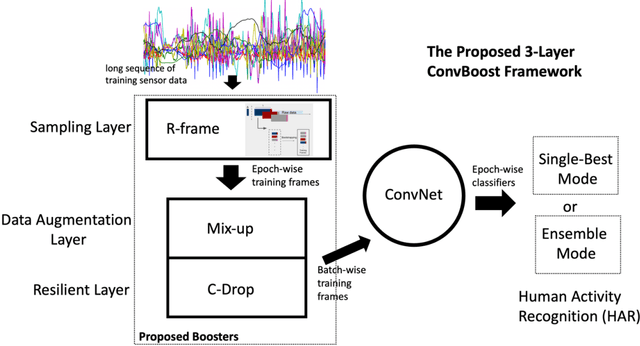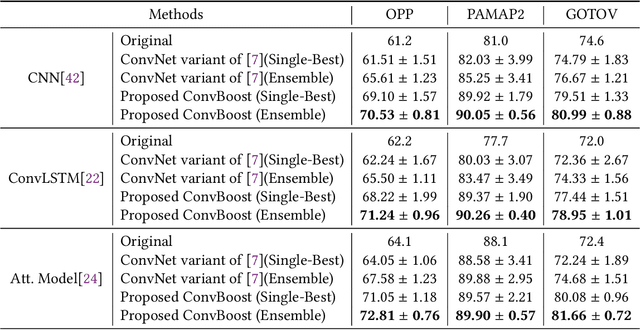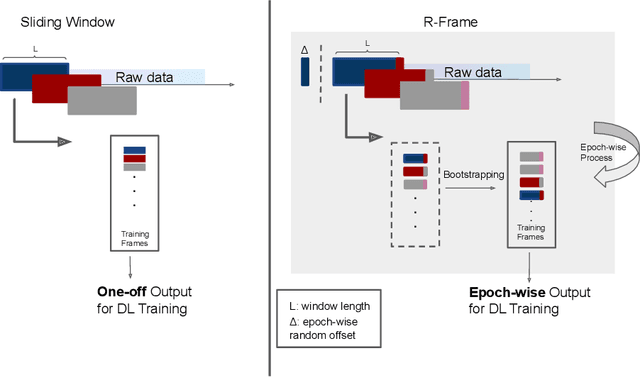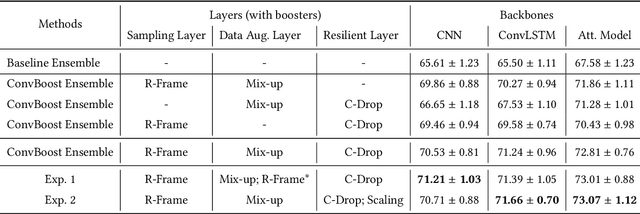ConvBoost: Boosting ConvNets for Sensor-based Activity Recognition
Paper and Code
May 22, 2023



Human activity recognition (HAR) is one of the core research themes in ubiquitous and wearable computing. With the shift to deep learning (DL) based analysis approaches, it has become possible to extract high-level features and perform classification in an end-to-end manner. Despite their promising overall capabilities, DL-based HAR may suffer from overfitting due to the notoriously small, often inadequate, amounts of labeled sample data that are available for typical HAR applications. In response to such challenges, we propose ConvBoost -- a novel, three-layer, structured model architecture and boosting framework for convolutional network based HAR. Our framework generates additional training data from three different perspectives for improved HAR, aiming to alleviate the shortness of labeled training data in the field. Specifically, with the introduction of three conceptual layers--Sampling Layer, Data Augmentation Layer, and Resilient Layer -- we develop three "boosters" -- R-Frame, Mix-up, and C-Drop -- to enrich the per-epoch training data by dense-sampling, synthesizing, and simulating, respectively. These new conceptual layers and boosters, that are universally applicable for any kind of convolutional network, have been designed based on the characteristics of the sensor data and the concept of frame-wise HAR. In our experimental evaluation on three standard benchmarks (Opportunity, PAMAP2, GOTOV) we demonstrate the effectiveness of our ConvBoost framework for HAR applications based on variants of convolutional networks: vanilla CNN, ConvLSTM, and Attention Models. We achieved substantial performance gains for all of them, which suggests that the proposed approach is generic and can serve as a practical solution for boosting the performance of existing ConvNet-based HAR models. This is an open-source project, and the code can be found at https://github.com/sshao2013/ConvBoost
 Add to Chrome
Add to Chrome Add to Firefox
Add to Firefox Add to Edge
Add to Edge